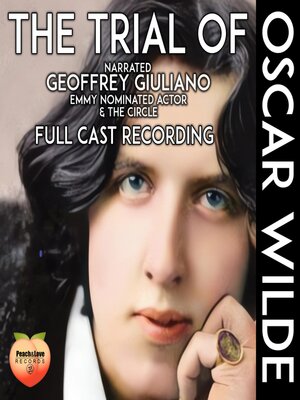
Sign up to save your library
With an OverDrive account, you can save your favorite libraries for at-a-glance information about availability. Find out more about OverDrive accounts.
Find this title in Libby, the library reading app by OverDrive.



Search for a digital library with this title
Title found at these libraries:
| Loading... |
In the late 19th century, Oscar Wilde, a flamboyant and renowned playwright and poet, was at the height of his success. His wit and charm captivated audiences, and his works such as "The Picture of Dorian Gray" and "The Importance of Being Earnest" were celebrated for their brilliance. However, Wilde's life took a dramatic turn when his personal life came under scrutiny.
"The Trial of Oscar Wilde" unravels against the backdrop of Victorian England, a society marked by strict moral codes and conservative values. Wilde, a man known for his sharp intellect and unconventional lifestyle, found himself entangled in a web of scandal and controversy. His close association with Lord Alfred Douglas, a young aristocrat, raised eyebrows and fueled gossip within the rigid social circles of the time.
As the whispers grew louder, Wilde's world began to crumble. In 1895, he took a daring step by suing the Marquess of Queensberry, the father of Douglas, for criminal libel. The trial that followed would become one of the most sensational and infamous events of the era. The courtroom transformed into a stage where Wilde's sharp wit clashed with the prosecution's relentless pursuit of moral rectitude.
The trial unveiled the complexities of Wilde's character—his brilliance, vulnerability, and unapologetic defiance. The prosecution painted him as a corrupting influence, while Wilde defended himself with eloquence and biting humor. The trial, however, took a turn when evidence of Wilde's homosexual relationships emerged, leading to his arrest on charges of "gross indecency."
The courtroom drama exposed the societal prejudices and moral hypocrisy of the time. Wilde, once the darling of London's literary scene, became an outcast. The jury found him guilty, and he was sentenced to two years of hard labor.






